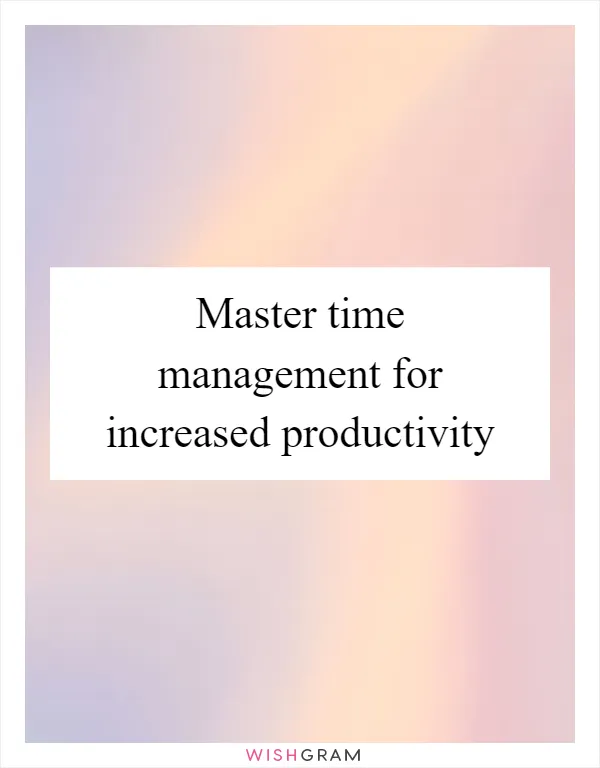Master time management for increased productivity
Time management is a crucial skill that plays a significant role in our daily lives. It allows us to make the most of our limited time and achieve our goals efficiently. Mastering time management is an essential aspect of self-improvement, as it enables us to increase our productivity and accomplish more in both our personal and professional lives.
One of the key benefits of effective time management is increased productivity. When we manage our time well, we can prioritize tasks, set realistic goals, and allocate appropriate time for each activity. This helps us stay focused and avoid wasting time on unimportant or non-essential tasks. By organizing our schedule and creating a to-do list, we can ensure that we are utilizing our time effectively and completing tasks in a timely manner.
Moreover, mastering time management allows us to reduce stress and improve our overall well-being. When we have control over our time, we can avoid procrastination and the last-minute rush to complete tasks. This reduces the pressure and anxiety associated with deadlines, enabling us to work more efficiently and with a clearer mind. By effectively managing our time, we can also create a better work-life balance, ensuring that we have time for leisure activities, hobbies, and spending quality time with loved ones.
To master time management, it is essential to identify and eliminate time-wasting activities. This requires self-awareness and the ability to recognize habits or behaviors that consume our time without adding value. For instance, excessive use of social media, aimless internet browsing, or spending too much time on unproductive meetings can all be time-consuming activities that hinder our productivity. By identifying these time-wasters, we can consciously reduce or eliminate them, allowing us to focus on more important tasks.
Another effective time management technique is prioritization. By categorizing tasks based on their urgency and importance, we can allocate our time accordingly. This ensures that we tackle high-priority tasks first, preventing them from piling up and causing unnecessary stress. Prioritization also helps us avoid multitasking, which can often lead to decreased productivity and lower quality work. By focusing on one task at a time, we can give it our full attention and complete it more efficiently.
Furthermore, effective time management involves setting realistic goals and breaking them down into smaller, manageable tasks. This helps us stay motivated and provides a clear roadmap for achieving our objectives. By breaking down larger tasks into smaller steps, we can tackle them more easily and track our progress along the way. Celebrating small victories and milestones can also boost our motivation and encourage us to continue working towards our goals.
